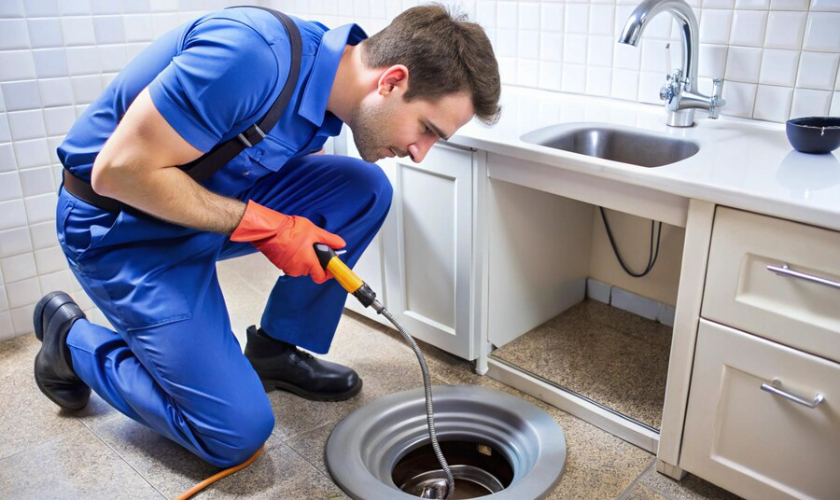Drain cleaning is a crucial part of home maintenance, but it’s often surrounded by myths and misconceptions. From using harsh chemicals to magical home remedies, many homeowners fall for ineffective solutions. In this post, we’ll separate fact from fiction and explore what really works when it comes to keeping your drains clean and clog-free.
One of the most common misconceptions is that pouring hot water mixed with dish soap down your drain will magically dissolve all clogs. While this might help with light, grease-based clogs, it usually isn’t enough for stubborn clogs caused by hair, food debris, or mineral buildup. Dish soap doesn’t have the power to break down everything, especially heavier blockages.
While convenient, store-bought drain cleaners often contain harsh chemicals like sulfuric acid or lye, which can damage your pipes over time. These chemicals may eat away at clogs temporarily but do little to solve the underlying problem. Furthermore, they pose serious health risks to your family and the environment. A safer and more effective approach is using natural or professional-grade drain cleaning methods.
Using a plumbing snake is not as complicated as you might think. It’s a simple tool that allows you to manually reach deep into your drain to clear out clogs. A snake works especially well for more stubborn blockages like hair clumps or mineral buildup. Most homeowners can easily use one to clear minor clogs, though more severe blockages may require professional assistance.
While mixing baking soda and vinegar is often touted as a natural solution to unclog drains, this method doesn’t always work for all types of blockages. The fizzy reaction helps with lighter clogs but is unlikely to tackle more substantial obstructions or tough mineral buildup. It’s best reserved for occasional light maintenance rather than severe clogs.
Regularly using drain cleaners as a preventive measure can actually do more harm than good. These chemicals wear down your pipes, leading to corrosion over time. Instead, a better strategy is using natural preventative methods such as periodic drain cleaning with natural solutions or professional inspections.
By busting these myths, it’s clear that while some popular methods may seem helpful, they don’t always deliver on their promises. Investing in professional drain cleaning or natural methods tailored to specific blockages will yield better results and keep your home’s plumbing in tip-top shape.
Drain cleaning myths can lead to unnecessary expenses, health risks, and even damage to your plumbing system. Stick to proven solutions and schedule regular maintenance to avoid the pitfalls of ineffective DIY hacks and chemical drain cleaners. For stubborn clogs, always consider calling in a professional plumber to ensure a thorough and lasting solution.
